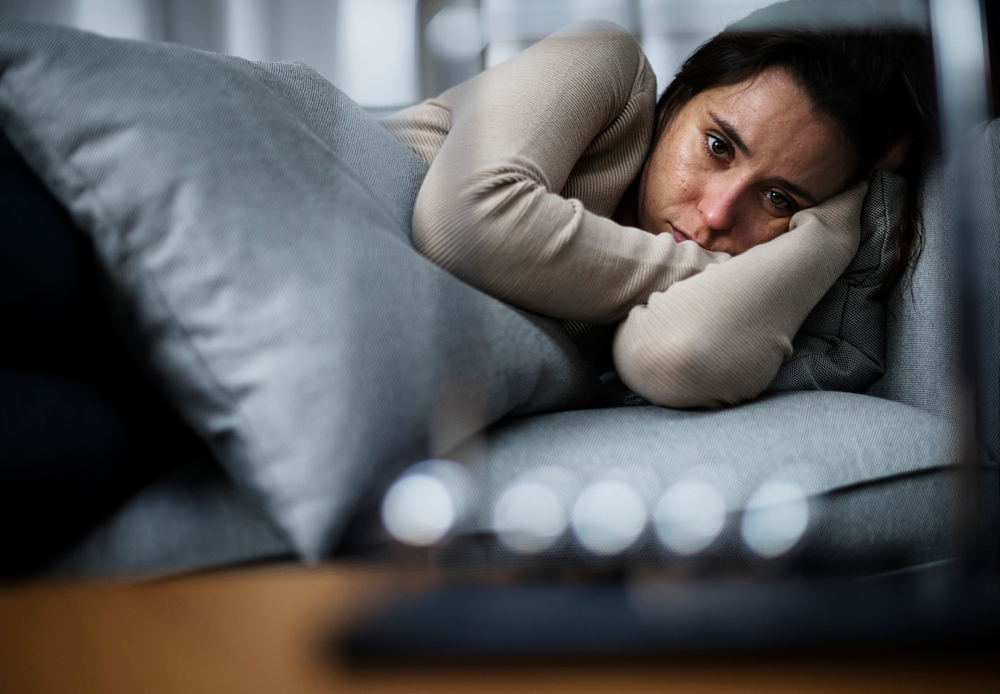PTSD stands for post-traumatic stress disorder. It is a condition that affects people from all walks of life, not just those in combat. You may have heard of this condition, but you don’t know much about it, and you have questions. Here are some answers about the effects of PTSD including one of the most common ones, “Is depression common with PTSD?” You’ll also learn how we provide effective therapy at our inpatient PTSD treatment center in Florida.

While some may think PTSD only happens to our first responders, anyone can develop PTSD due to a traumatic event, but the risk factors are just greater for those who serve the country. This paragraph from the National Center for PTSD puts it into perspective.
The risk of exposure to trauma has been a part of the human condition since we evolved as a species. Attacks by saber tooth tigers or twenty-first century terrorists have probably produced similar psychological sequelae in the survivors of such violence. Shakespeare’s Henry IV appears to meet many, if not all, of the diagnostic criteria for Posttraumatic Stress Disorder (PTSD), as have other heroes and heroines throughout the world’s literature.
This beautifully written prose is a simple way of saying that PTSD is neither a new thing nor one only related to certain situations. If you or your loved one is suffering from PTSD symptoms, get help today.
According to the American Psychiatric Association:
Post-traumatic stress disorder (PTSD) is a psychiatric disorder that can occur in people who have witnessed or experienced a traumatic event. These include things like physical or sexual assault, childhood abuse, a natural disaster, a violent assault, a terrorist act, a serious accident, war/combat, and more.
PTSD symptoms can vary greatly from person to person, however it can be divided into four main categories.
People with PTSD may experience flashbacks or nightmares related to the traumatic event. They may also have unwanted, upsetting thoughts about the traumatic event that come to mind without any warning.
People with PTSD may try to avoid anything that reminds them of the traumatic event, such as people, places, or conversations. They may also avoid activities or situations that could trigger memories of the traumatic event.
People with PTSD may have difficulty remembering details of the traumatic event or may have distorted beliefs about the cause or consequences of the trauma. They may also feel guilt and shame, have difficulty experiencing positive emotions, or lose interest in activities they once enjoyed.
People with PTSD may be easily startled or feel tense or on edge. They may also experience sleep disturbances, such as insomnia or nightmares. They may also have difficulty concentrating or controlling their emotions, and they may be easily irritated or angry.

PTSD affects the person and their relationships. It can make it hard to be around the person suffering from PTSD.
For the person with PTSD, there are a wide range of effects . If left untreated, these effects can multiply or get worse. Yet, According to the Substance Abuse and Mental Health Services Administration, PTSD is treatable, and if you or someone you know is suffering, there is help. Here are some effects those with PTSD may face.
Call now to be connected with one of our friendly, helpful admissions specialists.
An important thing to note is that it is uncommon for those with PTSD to not have other mental health problems. Not everyone has co-occurring disorders, but it is prevalent. There are common comorbid disorders that fall under. the co-occurring disorders umbrella. These include:
For those seeking treatment for PTSD, it is crucial to seek residential mental health treatment in Morriston, FL that can treat co-occurring substance abuse and mental disorders if they are present. This is because if we treat one without treating the other, the other may become worse. For example, if a patient has PTSD, and we treat a depressive disorder and only the depressive disorder, the PTSD may become amplified. This works the opposite way too. Treating depression without addressing PTSD does not help all the issues a person has.
For those without another disorder, it is still imperative to find treatment. PTSD doesn’t always go away on its own. Some people developing PTSD may have milder cases where it does fade over time. But for others, if left untreated, PTSD can last a lifetime. For some, anniversary dates of the trauma can trigger the effects of PTSD. And there are other triggers to be aware of.
To answer the question, “Is depression common with PTSD?” It is common and part of the co-occurring disorders we spoke of.
The good news is that we treat PTSD. At Transformations Mending Fences, there are many treatment options. We focus on those like:
There is no right or wrong choice. Treatments vary from person to person. Some react well to traditional treatments, while others need something else to help with the effects of PTSD. If you or a loved one has PTSD, it’s not your fault. This is a reaction to trauma and help from a PTSD Treatment Center can make a world of difference. Reach out to us and let us show you how we can help you live life untethered by PTSD.